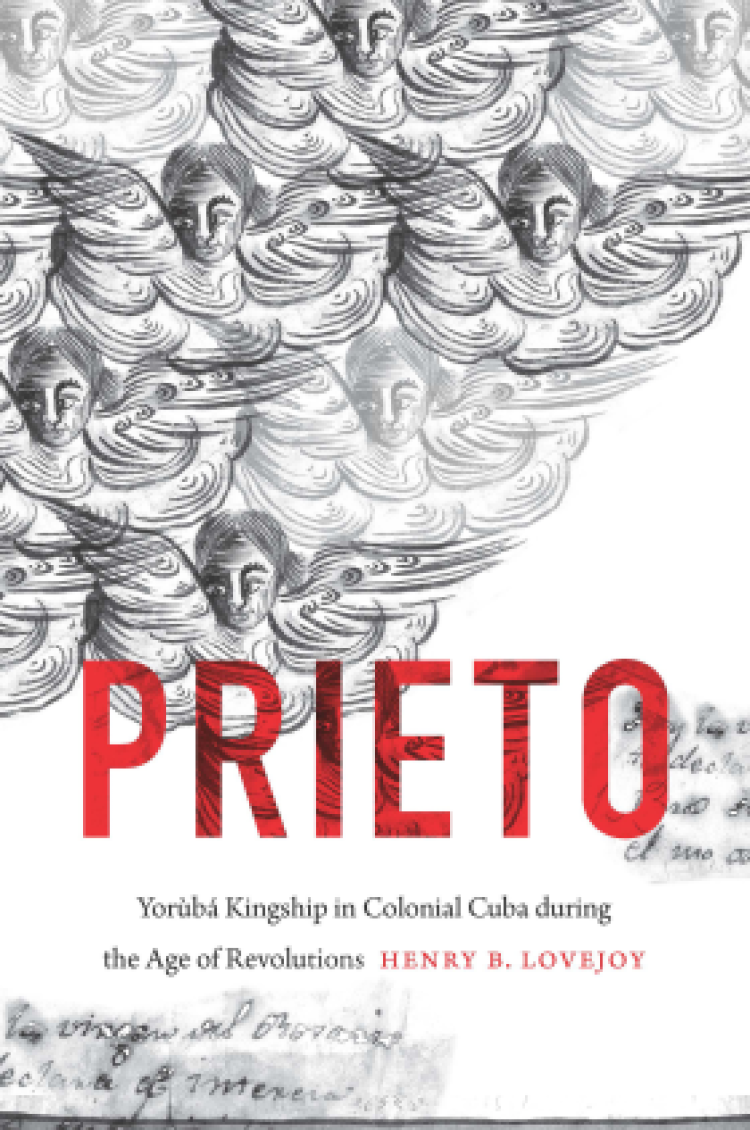Prieto
Yorùbá Kingship in Colonial Cuba during the Age of Revolutions
About the book: This Atlantic world history centers on the life of Juan Nepomuceno Prieto (c. 1773–c. 1835), a member of the West African Yorùbá people enslaved and taken to Havana during the era of the Atlantic slave trade. Richly situating Prieto’s story within the context of colonial Cuba, Henry B. Lovejoy illuminates the vast process by which thousands of Yorùbá speakers were forced into life-and-death struggles in a strange land. In Havana, Prieto and most of the people of the Yorùbá diaspora were identified by the colonial authorities as Lucumí.

Prieto: Yorùbá Kingship in Colonial Cuba during the Age of Revolutions
Prieto’s evolving identity becomes the fascinating fulcrum of the book. Drafted as an enslaved soldier for Spain, Prieto achieved self-manumission while still in the military. Rising steadily in his dangerous new world, he became the religious leader of Havana’s most famous Lucumí cabildo, where he contributed to the development of the Afro-Cuban religion of Santería. Then he was arrested on suspicion of fomenting slave rebellion. Trial testimony shows that he fell ill, but his ultimate fate is unknown.
Despite the silences and contradictions that will never be fully resolved, Prieto’s life opens a window onto how Africans creatively developed multiple forms of identity and resistance in Cuba and in the Atlantic world more broadly.
About the author: Henry B. Lovejoy is assistant professor of history at the University of Colorado, Boulder.
Praise for the book: “The enslaved African known in Cuba as Juan Nepomuceno Prieto is a fascinating example of an Atlantic Creole. Working through Prieto's voluminous trial record and the registers of Africans brought to Cuba, Lovejoy shows how Prieto’s eventual downfall was tied to the escalation of racial fears of slave conspiracies.”
—Jane Landers, Vanderbilt University
“Through the life story of a single individual, Prieto illuminates the important role African forms of association and religious worldviews played in shaping the experiences of enslaved and free blacks. An important contribution to the understanding of blacks’ resistance to slavery, this is a welcome addition in the fields of Cuban, Caribbean, and Latin American history, African diaspora studies, and religious studies more broadly.”
—Matt D. Childs, University of South Carolina

